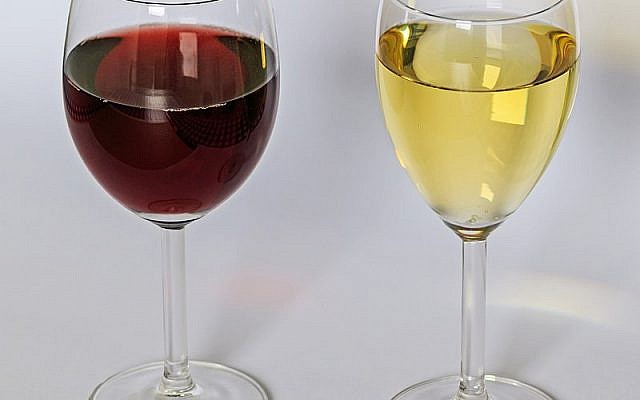EU official says France should label wine from settlements
Advocate-general at Court of Justice of the European Union rules in favour of French state, in a setback to groups that specialise in vineyards located in the Golan and West Bank

Lawyers for a French Jewish organisation and a vineyard producing wine from lands occupied by Israel since 1967 have suffered a setback on the labelling of products.
It follows the publication of a written opinion from an advocate-general at the Court of Justice of the European Union (CJEU), who ruled in favour of the French state for requiring that settlement products be labelled as such.
The legal opinion from such a high-ranking judge is a huge setback for companies operating in the Golan Heights, East Jerusalem and the West Bank, which had sought to sell their products in Europe as “Made in Israel”.
Advocate-General Gerrard Hogan opinion sided with the French Finance Ministry over lawyers for the Organisation Juive Européenne and Vignoble Psagot Ltd, a company specialising in vineyards located in territories occupied by Israel.
The labelling case concerns the interpretation of Regulation (EU) No 1169/2011 of the European Parliament and of the Council of 25 October 2011 on the provision of food information to consumers.
Hogan said EU states were required to label settlement produce as coming from occupied land because not doing so “might mislead the consumer as to the true country of origin or place of provenance of the food”.
The role of an advocate-general’s Opinion is to advise the CJEU, whose own role is to ensure EU law is interpreted and applied in every EU country, and it was noteworthy that the claimants’ lawyers tried to rely on a UK Supreme Court decision from 2014.
This case (Richardson v DPP) concerned a protest at an Israeli cosmetics store in London selling Dead Sea mineral products as ‘Made in Israel,’ when in fact they were made in a settlement in the West Bank.
The Supreme Court was asked whether the Israeli store had engaged “in a commercial practice which is a misleading action” by its labelling, and therefore fallen foul of the Unfair Commercial Practices Directive.
The justices ended up agreeing with a district court judge, who had said no laws were broken because the number of consumers who would care whether the Dead Sea mineral products were from Israel or the West Bank was too small.
“Whether or not the information given is false… I consider that the number of people whose decision whether or not to buy a supposedly Israeli product would be influenced by knowledge of its true provenance would fall far below the number required for them to be considered as the ‘average consumer’,” said the judge.
Hogan was unimpressed, however. In his judgement, “some reasonably well informed, and reasonably observant and circumspect consumers may regard [Israel’s illegal occupation of land] as an ethical consideration that influences their consumer preferences and in respect of which they may require further information”.

Thank you for helping to make Jewish News the leading source of news and opinion for the UK Jewish community. Today we're asking for your invaluable help to continue putting our community first in everything we do.
For as little as £5 a month you can help sustain the vital work we do in celebrating and standing up for Jewish life in Britain.
Jewish News holds our community together and keeps us connected. Like a synagogue, it’s where people turn to feel part of something bigger. It also proudly shows the rest of Britain the vibrancy and rich culture of modern Jewish life.
You can make a quick and easy one-off or monthly contribution of £5, £10, £20 or any other sum you’re comfortable with.
100% of your donation will help us continue celebrating our community, in all its dynamic diversity...
Engaging
Being a community platform means so much more than producing a newspaper and website. One of our proudest roles is media partnering with our invaluable charities to amplify the outstanding work they do to help us all.
Celebrating
There’s no shortage of oys in the world but Jewish News takes every opportunity to celebrate the joys too, through projects like Night of Heroes, 40 Under 40 and other compelling countdowns that make the community kvell with pride.
Pioneering
In the first collaboration between media outlets from different faiths, Jewish News worked with British Muslim TV and Church Times to produce a list of young activists leading the way on interfaith understanding.
Campaigning
Royal Mail issued a stamp honouring Holocaust hero Sir Nicholas Winton after a Jewish News campaign attracted more than 100,000 backers. Jewish Newsalso produces special editions of the paper highlighting pressing issues including mental health and Holocaust remembrance.
Easy access
In an age when news is readily accessible, Jewish News provides high-quality content free online and offline, removing any financial barriers to connecting people.
Voice of our community to wider society
The Jewish News team regularly appears on TV, radio and on the pages of the national press to comment on stories about the Jewish community. Easy access to the paper on the streets of London also means Jewish News provides an invaluable window into the community for the country at large.
We hope you agree all this is worth preserving.





















